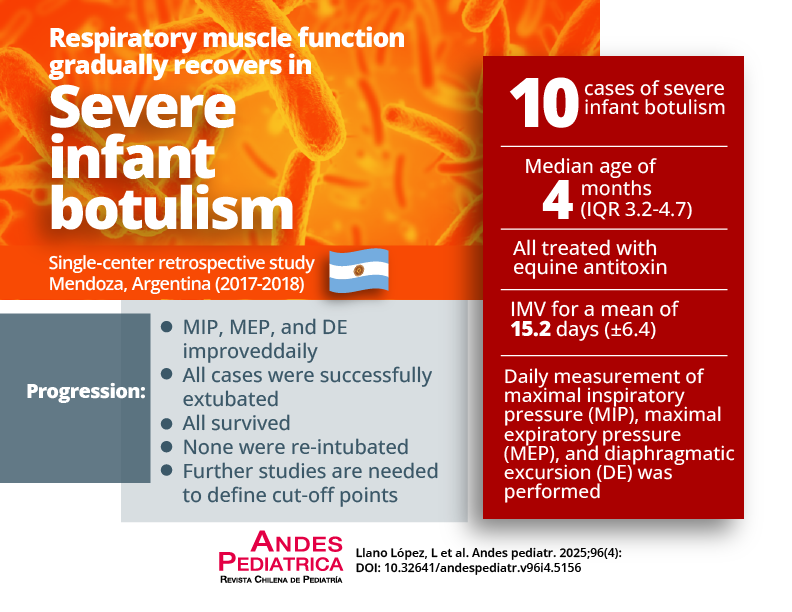Abstract
Infant botulism is a toxic infection that causes flaccid muscle paralysis, requiring invasive mechanical ventilation (IMV) in severe cases. Weaning from ventilatory support in this group of patients is challenging due to the difficulties in evaluating the recovery of muscle strength.
Objective: To evaluate the recovery of ventilatory muscle strength in infants with severe botulism.
Patients and Method: Demographic variables and daily measurements of maximal inspiratory pressure (MIP), maximal expiratory pressure (MEP), and diaphragmatic excursion (DE) were retrospectively evaluated in infants with severe botulism who required IMV, from the beginning of ventilatory support (baseline) until extubation (final).
Results: 10 patients were included with a median age of 4 months (IQR 3.2-4.7); all received equine botulinum antitoxin with a median delay of 89.5 hours (IQR 61.4- 114.2). The infants remained in PICU for a median of 15 days (IQR 12.5-16), with requirement of IMV for 15.2 ± 6.4 days. The baseline values recorded of IMV increased progressively, with significant differences compared to the final values (right DE 0.62 ± 0.1 vs 1.09 ± 0.29 cm, MEP 16 ± 6.7 vs 43±17.1 cmH20, and MIP 24 ± 12.4 vs 46 ± 6.9 cmH20, respectively). No patient failed extubation.
Conclusions: The parameters evaluated significantly improved during botulinum diaphragmatic paralysis. They could be useful tools for mechanical ventilation weaning in children with this neuromuscular weakness.

This work is licensed under a Creative Commons Attribution 4.0 International License.
Copyright (c) 2025 Revista Chilena de Pediatría






